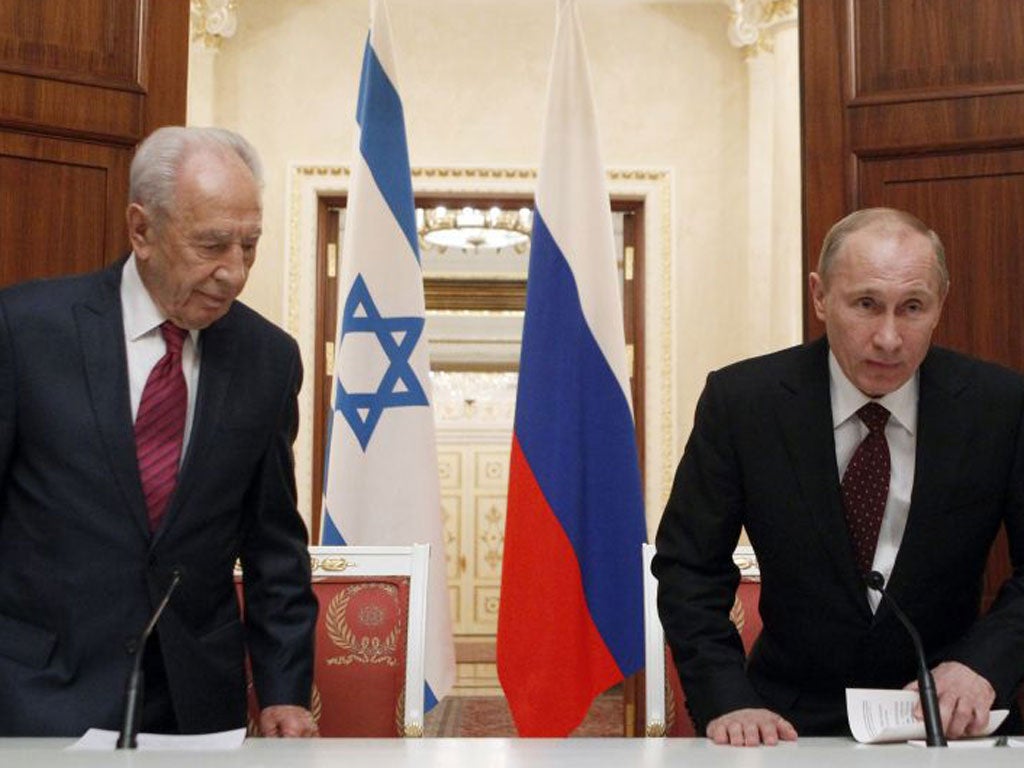Anti-Putin protester jailed for four and a half years

A Russian court yesterday sent a 36-year-old Muscovite to jail for four and a half years for his part in a protest rally against Vladimir Putin's return to the Kremlin.
Maxim Luzyanin pleaded guilty to charges of assaulting police officers, and is the first of 18 people facing charges over the same rally to be charged.
The rally was held in Moscow's central Bolotnaya Square on 6 May, the day before Mr Putin was inaugurated for a new six-year term. It was the latest in a series of street rallies that had been largely peaceful but became briefly violent when protesters threw rocks at riot police.
The arrests were seen as part of a wider crackdown against dissent since Mr Putin's return to the top job. While the case of punk trio Pussy Riot, sentenced to two years in prison for their "punk prayer" in Moscow's main cathedral, has made international headlines, those arrested over the disturbances at Bolotnaya have received much less attention.
Altogether 18 people have been charged with offences relating to the protest on 6 May, with some of them released on bail and others held in pre-trial detention.
One of them, 25-year-old Vladimir Akimenkov, has claimed he has a medical condition that is gradually depriving him of his eyesight and is remaining untreated in jail.
A judge last week extended his detention until March next year. Those who have been charged are mainly in their twenties and range from hardcore political activists to those who say they were caught up in events after attending the rally out of curiosity.
Luzyanin's case was the first to be heard as, unlike the others, he pleaded guilty to the charges. Some of the others accused have suggested that Luzyanin may have been an agent provocateur and there is now a worry that his confession and guilty verdict will implicate others and pave the way for harsh sentences for them. Luzyanin's lawyer has denied that his client made any kind of deal with investigators. Mr Putin, pictured, was re-elected in March with more than 63 per cent of the vote, but the election came amid unprecedented street protests.
The rallies, which started last December, have been mainly attended by Moscow's "creative class" – young professionals who travel, get their news from the internet and want a more inclusive political system.
However, the protests have also been attended by a whole range of political forces, from radical leftists to ultra-nationalists, and few of the leaders who have addressed the crowds have genuine popular appeal.
Since the summer, the street protests have died down and the opposition is now pondering future strategy, having recently elected a co-ordination council through an online vote.
Also yesterday, Mr Putin replaced the chief of the Russian General Staff just days after he fired the country's Defence Minister as part of a corruption scandal. Valery Gerasimov replaces Nikolai Makarov as head of the armed forces in a move that analysts said could be part of a battle between clans close to Mr Putin over military spending and resources.
General Makarov stepped down after Anatoly Serdyukov was fired as Defence Minister as a probe looks into alleged embezzlement by a Defence Ministry contractor.
Join our commenting forum
Join thought-provoking conversations, follow other Independent readers and see their replies
Comments
Bookmark popover
Removed from bookmarks